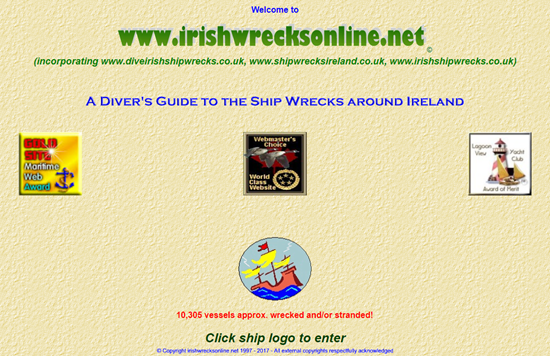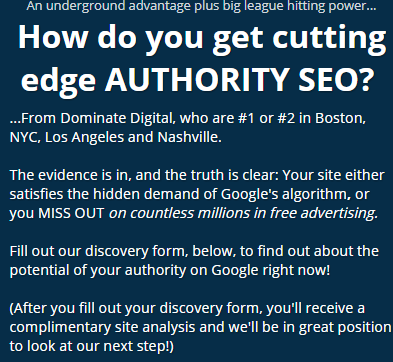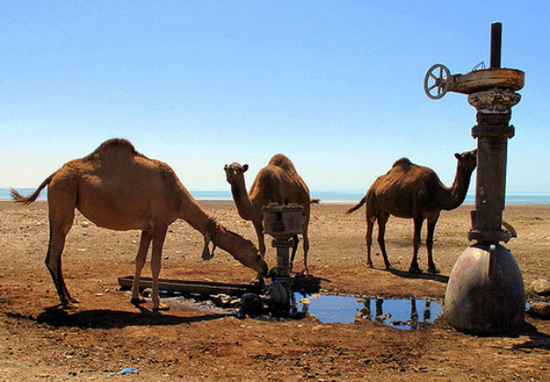The name’s a shameless rip-off of Wil Reynolds’s excellent presentation on “The High Cost of Free Traffic.” One reason I’ve got no shame is that that describes the situation perfectly: Although technically your business’s visibility in Google Maps and the rest of local search is free, you run into trouble once you start treating it as you would other “free” stuff.
Business owners and their marketers often mess up and overlook enough things even when they pay $20 a click (as in AdWords) for their traffic. Their strategies get even more ragged when they don’t have to pay for visibility in the local search results, and are confident they won’t need to any time soon.
“Free” gives you a sense of relief. You don’t think much about how you use your water if all you have to do is dip your cup in the creek. That’s fine as long as it’s not winter or there’s a cattle drive upstream.
What’s the “high cost” of free traffic (the one I named this post after)? It’s not one specific high price you pay, but rather a long list of missed-opportunity costs. They’re problems you’ll face, time you’ll waste, or wins you won’t seize.
They’re what happens when you assume “free” rankings and traffic are permanent, or unlimited, or guaranteed, or something you’re entitled to, or always easy to get more of, or always what you need more of.
Cost 1: Trying to farm out all parts of your local SEO strategy.
(Or, even worse, trying to farm out all of your marketing.)
Some parts of local SEO require a decision-maker’s personal involvement. Doing what it takes to earn good links and reviews are two examples of that. Though third parties can help to one degree or another, they can’t do it well and without any of your involvement. “Your one-stop, turnkey solution” is a marketing ploy. The sooner you realize that, the sooner you’ll get visible in the local search results, and have it actually result in more business, and have it last.
Cost 2: Seeing if you can “just get your site to rank” without putting in any real effort.
If your primitive strategy of microsites / keyword-stuffing / cheap links / lousy “city” pages doesn’t work you’ve wasted time and are back to the drawing board. Even if you’re fortunate enough to have your bare-minimum effort bring you good rankings, you’ll be one non-pushover competitor or one Google test or update away from Search Engine Siberia.
Especially when it’s early in your local SEO effort, either you need to specialize and carve out a niche, or put in a little work to differentiate yourself, or do both.

Cost 3: Only worrying about the “easy SEO wins” at first.
Isn’t it great if you can meet your goals with a minimum of effort? Sure. Shouldn’t you try to do that? Yeah, probably. But what if your quick no-brainers yield no results? Then it’s a question of when you start putting in the hard work, and how long it takes to pay off. Fixing up your title tags, wiggling a few keywords into the cracks, and cleaning up your local listings will only get you so far.
How long should you wait to see if your quick wins did the trick? 2 months? 6 months? A year? Damned if I know. I say you start digging the well before you’re thirsty. Start on the ongoing activities while you’re still working on the one-time stuff.
Cost 4: Using a site/CMS that makes changes difficult or slow to make.
Your Squarespace or Wix or Joomla or GoDaddy site is probably fine to keep if you can structure it correctly, create a homepage that doesn’t suck, make it more or less conducive to conversions, and do other basics. It doesn’t need to be perfect. It’s better to get a rough site out there early, and improve it later. The problem is what happens if you can’t improve it later. Because you consider your local search traffic “free,” you don’t feel it’s urgent to get a site you can work with. You’ll let it molder until traffic dries up or something really breaks, or both.

Cost 5: Hiring hacky writers.
If you had to pay $20 for each click, would you send visitors to pages that don’t make it clear what you do, or pages that make it apparent you’re “too busy” to put any effort into your site yourself, or pages that make you look like you can’t string two sentences together? No? Well, doing that with “free” traffic is even worse. At least if you pay $20 (or much more) for a click, you might eventually learn that more traffic often isn’t the answer.
With bad writing you have the online-marketing equivalent of BO.

Cost 6: Waiting too long to get serious about getting reviews.
You probably “just want to rank” first. Once you have more customers, you’ll start encouraging reviews. That’s backwards. Good rankings without good reviews tend not to bring in much business. On the other hand, good reviews will help you as soon as you start getting them, no matter how visible you are. Go after them early.
Cost 7: Not replying to customers’ reviews, even when you don’t “have to.”
You probably don’t let negative reviews go unaddressed. That’s usually wise.
What about the positive reviews? Think of how hard you’ve worked to get however much visibility you’ve got, and to do a good enough job for customers that they wrote you those nice reviews. Don’t you want that visibility and traffic to convert as many customers as possible, so you continue the upward spiral? Sometimes replying to a positive review – even if only to say thanks – is a way to do that. It shows you give a hoot, and that you still care about customers after they’ve paid you and reviewed you.
Cost 8: Assuming all your visitors saw your best reviews before visiting your site.
Given all the info Google shows IN the search results these days – especially when people search for your business by name – it’s smart to think of Google’s results as your second homepage. To wow customers there with all your reviews is crucial, and you need to do it. Those review sites sure are prominent.
But what if those people go even farther, and get to your site? Those people are even deeper into your “conversion funnel,” and are this close to taking an action you want. Don’t hold back now. Even if they saw your “review stars” in the search results, they probably didn’t see reviews from specific customers. If you had to pay for each click, you’d make sure your best reviews were front-and-center. That’s smart even if you don’t pay for each click.
Splatter or sprinkle your reviews across your site.
Cost 9: Waiting too long to start earning links.
Yes, the one-time work on your site and on your listings is important. You may see a bump from doing only that. But sooner or later you’ll hit a plateau. At that point you can’t just “optimize” your site more, or crank out more citations, and expect to get unstuck. And don’t think an SEO person has some fancy maneuver for your site that will do it. You’ll go round and round on tweaking or overhauling your site, to no effect. 7 SEO “experts” and many dollars later, you’ll realize you missed a big piece of the puzzle. You could have spent a fraction of that time on effort on trying to earn good links, and you could have seen results sooner. Slow process? Sure, but not as slow as the alternatives.
Here are some relatively easy link ideas, just to get the juices flowing.
Cost 10: Fixating on ranking across your entire service area.
You want to rank in 25 more towns. That’s a fine goal. So you must be pretty visible in your town already, right? If not, start there and branch out only when you’ve had some success. Now, it may or not be possible to rank in all (or half) of the places you want to reach. It depends on many factors, including whether you’re trying to rank in the local organic results (doable) or in the Maps results (less realistic). I’m not even saying you should trim back your goals. I’m saying only that you should do what it takes to build up a little visibility in the place where it’s most likely you can do so, before you try to go farther afield.
Cost 11: Creating lots of awful “city pages.”
If you won’t take the time to do them right, at least don’t spend too much time on doing them wrong. Make 5 worthless pages rather than 50 worthless pages. That way, you can return that much sooner to whatever you were doing that was so much more important than putting a little thought into your city pages, so that they might rank and convert.
Cost 12: Never using AdWords to learn about would-be customers or to sniff out markets.
Too many business owners think, “Why on earth should I pay for traffic when I can get it for free?” Well, for one thing, because it’s the only practical way to sniff out people’s level of interest in specific services in specific cities/areas where you don’t rank.
Google Analytics only tells you about the traffic you already get, and nothing about the traffic you might be able to get. Set up a quick-n’-dirty AdWords campaign, keep it on a short budgetary leash, let it run for a couple weeks, and mine the stuffing out of the “Dimensions” tab. I know of no better way to research keywords, to get a sense of how well traffic converts for those keywords, and to find out exactly which cities/towns those searchers search from.
If you think of pay-per-click as a way to buy data (and not necessarily to get customers, at least at first) you probably couldn’t get anywhere else, you can put new vim and vigor into your local SEO effort.
Cost 13: Assuming that because your local visibility is “free” it’s also unlimited.
That may be the costliest cost of all, for many reasons.
You can always lose visibility.
You won’t have a monopoly while you have it.
Just because you got some visibility easily doesn’t mean you can get more with similar ease.
You don’t know who will become your competitor next.
Google likes to test just about all aspects of the search results.
Google likes to change policies in all areas of search.
Google likes to stuff the free search results with paid search results.
You don’t even own your local listings. The only online thing you own is your site, and everything else is rented land.
It’s for those reasons and many others that you do not want to grow complacent.
Why do the signs at parks and nature reserves tell you not to feed the animals?
Because if you feed them and other people feed them, they’ll get conditioned to freebies, and not be as able to hunt and forage. (Also, the tripe most people eat isn’t necessarily good for a growing critter.)
If you’re an animal, it’s fine to catch as catch can, but you probably want to be able to feed yourself if the hands with free food ever go away. The same is true of business owners. Don’t be a Central Park pigeon.
—
What’s a missed-opportunity cost I missed?
Any cautionary tales?
Leave a comment!




Nice one, Phil! 🙂
Thanks, Tim!
Great post. I am always surprised by how many dollars a business owner is willing to lose for a “bargain”. Bargain website, bargain marketing can cost a lot of money!
Thanks, Jeffrey. Well-said. There are no “solutions” – only trade-offs.
>[Bargains] can cost a lot of money!
It’s funny and also interesting how true this is, not just in marketing/SEO but in life in general.
No such thing as a free lunch, as they say 🙂
Phil: I love your articles. Ultimately they are for the businesses, the SMB’s. Unlike most of the writing in the local world they focus specifically on those things that businesses and business owners should focus on: not the technical things that the Local SEO world and the consultants hash over.
I’m in the position of being both: the SEO and the business. After many years of this I could care less about a lot of SEO reports. In our type businesses a couple of metrics are far and away most important:
1. Sales. Without sales I eat lettuce rather than hamburgers or steak. I have no employees. I can’t afford to pay SEO’s.
I’ve been doing this for years. For our business types that are involved services with involved sales I have yet to see a web report that gives us good data. Been doing the SEO marketing work on these businesses for over a decade. No report has ever gotten close to a good number for that.
2. Leads. Ultimately for our businesses our sales are a function of the volume of overall leads and really qualified leads. They come in via walk ins, calls, and website forms.
We’ve worked on our website forms in a way where we get some info that gives us BETTER info as to the likelihood of a sale. It took work and experimentation than measurement. It doesn’t tell us sales. It tells us when a sale might be “likelier”.
A form lead could come from someone who found us in search or who heard about us and raved about us from their closest most trusted friend. The latter person is likelier to purchase. We don’t get any of that info from seo reports of any kind. We happen to know its true because we have surveyed thousands of customers.
3. Anyway all of the suggestions above are excellent. As I look at the suggestions I know that on our sites we don’t have ANY of those items down perfectly. Its always an ongoing process.
4. As to the points you made above: I really like #12. We have both landed leads AND learned an enormous amount from adwords. Once we learned different things we applied them and some of what we’ve learned has led to more sales. The article you linked to on dimensions is indeed insightful. We’ve changed things based on location data in insights. When we saw that there were enormous volumes of relevant impressions from certain geo areas we added specific marketing efforts into those areas: sometimes web….sometimes not. Increased visibility in those areas increased sales!!!!! We love it!!!!
5. #13 is so true. Google changes visibility all the time. ALL.THE.TIME. Have free visibility and ranking #1 in year 1…wait till year 3. You will rank #3 and get one fifth the search traffic. It could be google changes: it could be competition; it could be both.
6. Go back up to the top: #1. From an owner perspective BE INVOLVED. Don’t farm out everything!!! Know what the heck is going on. Relate the reports to your business. All I can say is it will screw up if you aren’t involved.
Really each point is worthwhile.
Nice work, Phil. Another great article. Very helpful to smbs and the owners.
Thanks, Dave. Although I crack into the SEO catnip from time to time, I try to approach everything from the business owner’s POV.
You’ve done a good job of using search as a launching pad pointed at the rest of your marketing (e.g. word-of-mouth). Sure beats the typical treadmill (slow down and you fall off and break a tooth) or hamster wheel (round and round, going nowhere).
That Dimensions -> User Locations area of AdWords is gold. No better way to get hard data, confirm suspicions, and have the occasional “Eureka!” moment.
This is a confusing article to say the least.
Help me understand.
You are saying a high cost to thinking local search is free is that you ‘hire hacky writers’?
I don’t understand the logic.
Should you hire ‘hacky writers’?
Of course not, but what does that have to do with somebody thinking that local search is free?
Am I the only stupid one reading this?
When people start counting on free / abundant traffic, often they don’t care as much about making that traffic convert. Bad writing kills conversions. (Also, effective writing overlaps a lot with effective SEO, in my experience.)
What other part(s) of the post did you find confusing?
I guess, I just don’t understand how thinking traffic is free correlates with any of the things you listed. So, perhaps the title is the thing that is misleading. I suppose you didn’t want to go with the typical:
X SEO Mistakes Small Business Owners Make
so you polished it up a bit, but made it confusing at the same time.
X SEO Mistakes Small Business Owners Make
would have been a better description of what the blog post was actually about and less confusing…
I’m just not seeing that, Brian. Not sure other readers do, either. The premise of the post is simple: if you get too comfy with the idea of free traffic (meaning you assume it’s easy to get or hard to lose, or always the limiting factor in your marketing), you’re more likely to make mistakes. Emphasis on “likely.” Some people don’t make the 13 mistakes I describe. That’s good.
Appreciate the feedback, though.
Do not feed the troll, Phil!
The jury’s still out on that….
Phil:
I really liked every one of the points. We have made an effort on each type. I love the point about getting good writers, not hacky cheap writers. We have some well written content on various sites that come from experts that also had a way with words. They all earned links. On their own. They were link worthy. I can compare that against some of the crappy other content we’ve had, including some I’ve written (realizing it was crappy) and NO LINKS. no time spent on the pages. It makes a difference. If time spent on a site is valuable as a ranking tool…and you create compelling content…you are a winner. That is only one comment on one aspect of what you have touched on above.
Here is an element not touched on above but it also works. The issue though is it could be expensive; mildly expensive or crazy expensive. I’d suggest trying it if one can afford it or you have it in your budget, and once you gather your data cut it out.
Run broad term search terms. Monitor it closely. It can tend toward expensive. Mine the information on specific terms that come up. It gives you data that would be helpful such as:
1. You can get data that will guide you toward which city pages via adwords impressions on the location page as described above. You also can get ideas about which city names to use for your services and which city pages to target. They can show up in broad phrase terms.
2. Broad phrase search terms show you how people speak and write. Its one of the ways to learn how to create content that relates to your topic and specifically how to search for those topics. You can do it off of broad term. If your site is large enough to warrant an internal search box, its one of the great ways to capture search terms. That is another way to capture exactly how people search.
Broad phrase search captures exactly how people phrase search terms. Its very inciteful. Its dramatically more inciteful than any keyword tool I’ve seen.
The issue is that it can be expensive. Use it judiciously. But it offers great value that is difficult to get in any other manner.
Very true, Dave. It’s amazing what you can learn if you treat the first grand or so (or even less) as a sacrificial goat in the name of testing and snooping. Better than blowing many times that on outside SEO help that doesn’t help.
Good post Phil,
What would you do if you lost all your “free” visibility? FREE = GIFT…. DON”T GET USE TO IT! No one owes it to you, It won’t last forever…nothing free ever does. If you are lucky enough to be the recipient of temporary “free” visibility, Think of it like the “free” $300 G offers you to try PPC ads. Take the funds you make from that traffic and invest in improving your organic traffic. If the free traffic goes away you have changed it into the gift that keeps on giving.
Oh yeah….what Phil said!
Keep smacking us with good info Phil, not all of us are brain dead.
Hunter
Thanks, Hunter. Seeing free traffic as a “gift” rather than a given is the way to go.
Well written as usual Phil. Nothing makes a local SEO more perturbed than wonky, hacky, thin and useless locations pages, but so many agencies sell them as these amazing service add-ons. Meh.
Agencies. I Don’t trust 98% of them, and a business owner shouldn’t either.
Thanks, Gerry.
I agree on all points.
A lot of strong points but 4 and 9 really resonated for me. I’ll also have to give you credit for when I inevitably use the phrase “search engine siberia” in the future. Thanks Phil
It was a close heat between that and “Google Gulag” 🙂